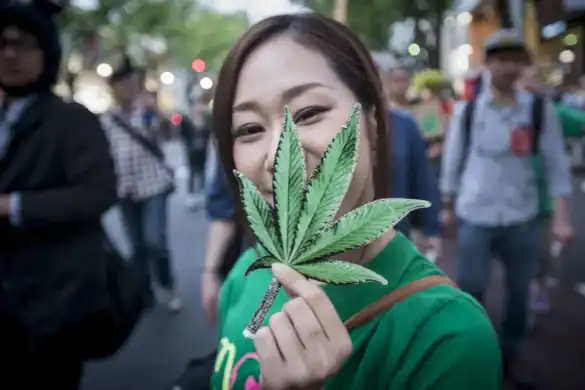A landmark study funded by Japan’s Ministry of Health and the Japanese Clinical Association of Cannabinoids has concluded that marijuana is not a gateway to harder drugs, challenging a long-standing assumption in global drug policy.
The research, published in Neuropsychopharmacology Reports, surveyed 3,900 cannabis users and revealed that alcohol and tobacco typically precede marijuana use—not the other way around. Most users did not go on to experiment with more dangerous substances after trying cannabis, casting doubt on the theory that marijuana leads people down a path toward addiction.
Breaking the Gateway Myth
The study found that nearly half of respondents who used cannabis as their third drug did not continue on to any other illicit substances. Additionally, researchers noted that factors like socioeconomic status, age, and education had a stronger influence on drug use patterns than cannabis itself.
“Our data suggest that cannabis is not a stepping stone to other drugs,” the report states. “Instead, people’s broader life context—and how strict drug laws shape access—play a more significant role.”
What the Numbers Say
Analyses showed:
- Odds of using alcohol after cannabis: 1.25
- Odds of using tobacco: 0.77
- Odds of using methamphetamine: 0.08
- Odds of using other illicit drugs: 0.78
These low figures, according to researchers, indicate no clear progression from marijuana to more dangerous drugs. While 10.4% of cannabis users in the survey reported having tried methamphetamine—compared to only 0.5% in the general population—the study found no causal link, only correlation.
The Real Link: Common Vulnerabilities
Rather than blaming cannabis, the study backs the common liability theory: the idea that certain individuals are predisposed—due to genetic, psychological, or environmental factors—to try multiple substances.
In Japan’s case, tight drug laws may even backfire by pushing cannabis and harder drugs into the same black market, inadvertently exposing users to more dangerous substances.
The authors also observed that cannabis users in the survey reported lower usage of legal prescription drugs, such as benzodiazepines, suggesting they may not be inclined toward habitual substance use in general.
Limitations and Future Research
The researchers caution that the data came from an anonymous online survey, which may have introduced bias, and only included people who reported lifetime cannabis use. Broader, population-based studies are needed to confirm these results.
Still, the conclusion is clear: there is no strong evidence supporting the gateway drug theory in Japan.
This report adds to a growing body of research questioning long-standing beliefs about cannabis and its effects. For more on cannabis science, explore how THC breath tests may not work for edibles in this NIST-backed study, or read about recent findings on how CBD can relieve symptoms of inflammatory bowel disease. Curious about cannabis and pest control? Check out how CBD affects mosquito larvae.

